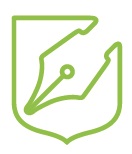Amica Liburd, a PGR in the Department of Theology and Religion, attended many of the workshops as part of the Postgraduate Researcher Online Writing Summer School 2023, held 10-14 July. Here, she reflects on what she gained. To access recordings of all the workshops, enrol on the Canvas module.

What if there is more to the PhD journey than simply writing a thesis? Participating in PROWSS2023 online workshops helped me to appreciate the value nurturing the skill of writing so that after years of “writing towards a thesis”, I can emerge as someone who can effectively communicate to others about the ideas that I am passionate about. Since starting the PhD journey in September 2020, I’ve wanted to dedicate a week to attending this annual workshop. Back then it seemed like the ideal way to start the journey. Unfortunately, it took three years to attend and even then, I still had to negotiate attending some sessions alongside a Conference that was being held simultaneously. Fortunately, both events were online and all the resources for PROWSS2023 are also now available online so if I missed a session, I could easily access it later. Prioritizing the sessions which were relevant to my stage in the PhD journey was an excellent decision and at the end of the week there were at least three sessions I was glad that I didn’t miss. The perfect conditions for attending this year’s PROWSS did not come, however two of the sessions I attended and found most helpful were Managing Writing Momentum and Shut up and Work!!
Managing Writing Momentum
Point me to the PhD student who has perfectly mastered the art of maintaining writing momentum! The week was certainly off to a great start with this topic. We were reminded by the Dr Emma Foster that writing momentum is something that can be cultivated and thereafter maintained with practice. To cultivate such momentum, writing must become part of one’s daily routine. Writing every day can help me professionalize something that I already enjoy doing. And if I’m not enjoying it on any given day, … I’ll just have to try pretending that I do. Alternatively, I can imagine that I am a renowned author/academic with an readership who is eager to read my next publication. This session reinforced just how closely related the researcher’s holistic wellbeing is to maintain sustainable patterns for engaging with research and writing well. The image of writing as a muscle that must be strengthened was insightful. But even more sobering was the caution that unhappy writers often lack inspiration, are melancholy, aren’t as creative as they can be and are starved of determination. Prioritizing breaks so that the subconscious can creatively blend ideas is imperative, unless of course you fancy a quick burn out. Not only do regular breaks replenish creativity but it goes a long way to keeping the writer happy to produce quality work. A bit of light yet meaningful humour … “Don’t stop unless your rear end falls off. And if it does fall off, put it in a paper bag and take it with you. Stopping is what kills momentum!” Perseverance is key.
Shut up and work!!
The Online Shut-up and Work Sessions organised by the Graduate School have over the past three years been quite helpful. No surprise then that the day of focused work with other researchers who were determined to accomplish some set tasks was equally valuable. Using the Pomodoro technique with regular intervals helped me to catch up on work that I needed to get done, after a week of online conference and workshops. Being able to identify key areas for follow up the next week gave me a plan for my next workday.
Interestingly the two sessions I reflected on were the start and the end of PROWSS2023. This is not to say that what happened in between was not pertinent to the overall experience. The online resources state otherwise. The start and the end of PROWSS2023 reflect what holds the PhD experience together if we choose to persevere in what could be an edifying adventure.







 I planned to work in the evenings and at weekends, only venturing onto campus as needed. On a regular basis I would receive e-mails which would tell me all about the opportunities that were available for PGRs and one always stuck out –
I planned to work in the evenings and at weekends, only venturing onto campus as needed. On a regular basis I would receive e-mails which would tell me all about the opportunities that were available for PGRs and one always stuck out –